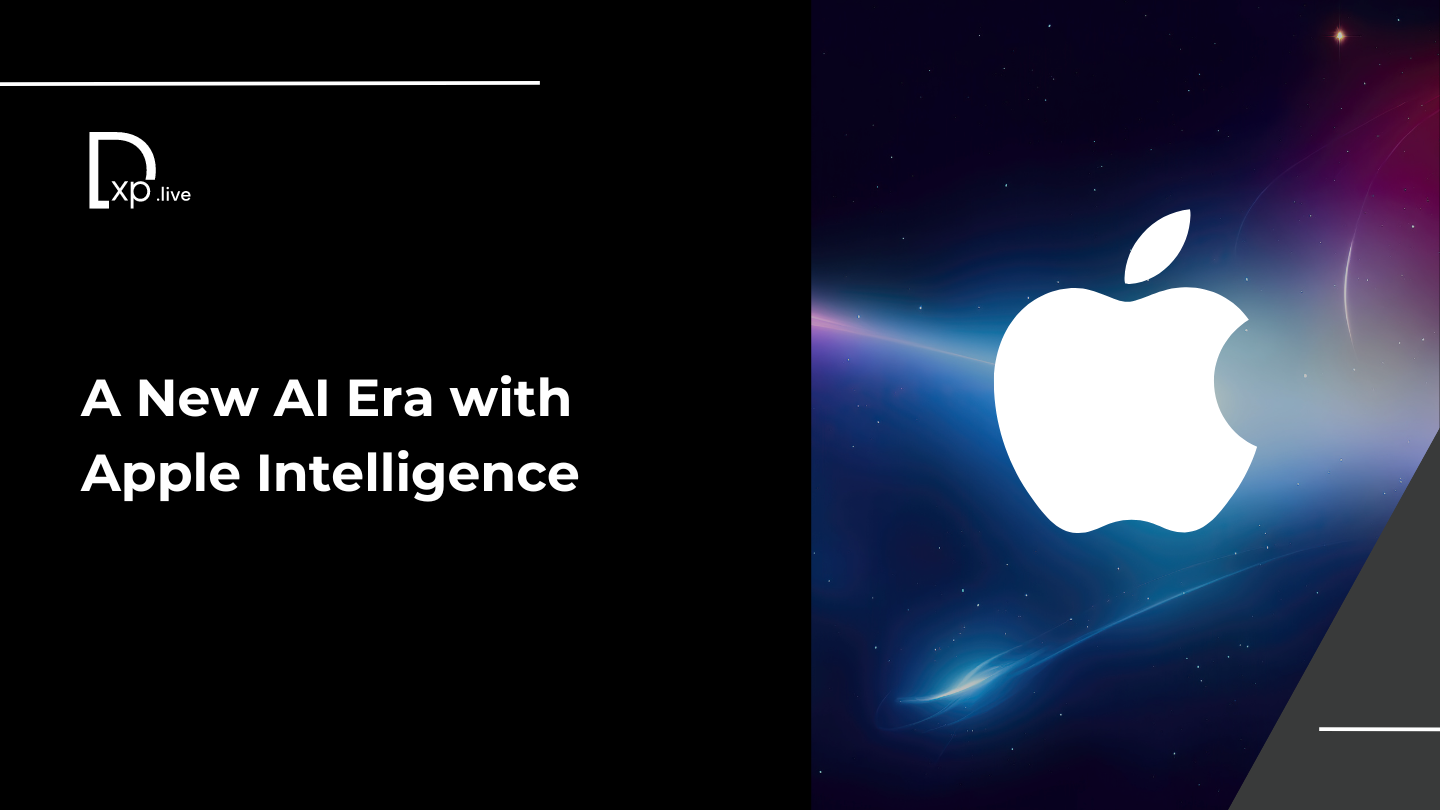A New AI Era with Apple Intelligence

As Apple launches its Apple Intelligence suite, we are witnessing a pivotal moment in how artificial intelligence reshapes our interaction with technology. Apple's foray into generative AI with the introduction of tools like revamped Siri, text summarization, and photo-editing capabilities marks a significant milestone. But does this represent the dawn of a new era or merely a promising start? Let's delve into the features, potential, and challenges of Apple's latest innovation.
The Promise of Apple Intelligence
The initial rollout of Apple Intelligence brings with it enhancements that promise to streamline our digital lives. At its core, the suite aims to make everyday tasks more efficient. The ability to transcribe audio recordings accurately is a boon for professionals across various fields, simplifying the process of documenting conversations and meetings. This feature alone could transform workflow efficiencies, reducing the manual labor of transcription and allowing more time for analysis and creative processes.
Moreover, Apple's Siri has received a much-needed boost. Now capable of navigating the complexities of Apple's ecosystem, Siri can assist users in leveraging the full potential of their devices. Whether it's running apps side-by-side on an iPad or finding features buried in the interface, Siri's enhanced capabilities are geared towards making technology more accessible and user-friendly.
The Limitations of Current AI Tools
However, not all is smooth sailing. Apple Intelligence's debut also highlights the inherent challenges and limitations of current AI technologies. The photo-editing tool, which aims to remove unwanted elements from images, has shown mixed results. While the idea of cleaning up a family portrait by removing a photobomber sounds appealing, the reality is a hit-or-miss outcome that can sometimes leave behind a worse mess than the original.
Similarly, the text summarization tool underscores the difficulties AI faces with context and accuracy. Apple Intelligence's mishap in recommending high-mercury albacore tuna, despite its known health risks, raises concerns about the reliability of AI in making health-related suggestions. This issue, known in tech circles as "hallucination," where AI fabricates information, is a stark reminder of the technology's nascent stage and the need for cautious implementation.
Apple vs. Competitors
As Apple introduces AI tools that are already familiar to users of other platforms, one must consider its position in the competitive landscape. Companies like Google and Microsoft have long integrated AI into their products, offering sophisticated tools that assist with everything from email drafting to photo editing. Apple's entry, while significant, does not yet redefine the AI arena but rather catches up to existing standards.
This move could be seen as a defensive play, ensuring that Apple products do not become obsolete in an increasingly AI-driven world. The restructuring from a focus on autonomous vehicles to AI software development reflects Apple's strategic shift towards maintaining relevance and competitiveness.
What's Next for Apple Intelligence?
Looking forward, the evolution of Apple Intelligence will be crucial. Apple has planned gradual updates, potentially incorporating more advanced features like integrating ChatGPT, which could drastically enhance Siri's capabilities and overall user interaction. The success of Apple Intelligence will depend not only on the sophistication of its features but also on its ability to integrate seamlessly into users' daily routines, enhancing productivity without compromising user experience.
Here’s how these advancements could transform user experience:
Enhanced Interaction and Automation
The potential integration of ChatGPT with Siri could revolutionize how users interact with their Apple devices. Siri, equipped with the sophisticated language model of ChatGPT, could understand and execute complex commands that go beyond setting reminders or sending messages. This could include tasks like summarizing emails, generating reports, or even drafting responses based on the tone and context of incoming messages. By significantly reducing the time users spend on routine tasks, Apple Intelligence could boost productivity and streamline daily workflows.
Contextual and Predictive Assistance
With advanced AI features, Siri could offer more contextual assistance based on the user’s habits, calendar, and communication patterns. For instance, Siri might suggest sending a follow-up email if a recipient hasn’t replied within a typical response time, or it could offer to reschedule meetings if there’s a scheduling conflict. This level of predictive assistance could help users manage their time more efficiently, making Apple devices not just tools for communication, but proactive partners in managing day-to-day tasks.
Seamless Multitasking
Future updates to Apple Intelligence could improve multitasking capabilities, making it easier to use multiple apps simultaneously without a drop in performance or usability. For example, users could request Siri to reference data from one app while working in another, blending the capabilities of various tools into a cohesive workflow. This would be particularly beneficial for professionals who rely on swift data retrieval and decision-making, like financial analysts or project managers.
Personalized User Experience
As AI becomes more integrated into Apple’s ecosystem, there’s potential for a more personalized user experience. Apple Intelligence could learn individual preferences and adapt interfaces, notifications, and functions accordingly. This could mean altering the visual layout of a device during different times of the day to reduce eye strain or prioritizing notifications based on the user's past behavior and current context. Such personalization would not only enhance comfort and usability but also make technology feel more intuitive and responsive to individual needs.
Enhanced Accessibility
Advancements in AI could also bring significant benefits to accessibility, making Apple devices more usable for people with disabilities. Improved voice recognition could aid those with motor impairments, while better contextual understanding could help users with visual impairments navigate their devices more effectively. These enhancements would make technology more inclusive, extending the benefits of digital innovation to a broader audience.
In A Nutshell
Apple Intelligence represents a promising but tentative step into the AI landscape for Apple. While it showcases Apple's commitment to innovation, it also highlights the challenges of pioneering reliable AI tools that enhance user experience. As Apple continues to develop and refine these tools, the true potential of Apple Intelligence will unfold. The next few years will determine whether this initiative will transform into a must-have suite of AI applications or remain a collection of useful but limited tools. For now, Apple users and tech enthusiasts alike should watch closely, ready to embrace the advancements while remaining critical of their practical applications.
For more expert insights and in-depth analysis on the latest in technology and innovation, continue exploring our website.




